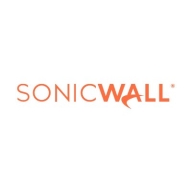


SonicWall NSa and Check Point Quantum Force compete in the network security category. SonicWall has the upper hand in cost-efficiency, while Check Point stands out for its comprehensive security capabilities.
Features: SonicWall NSa offers a straightforward pricing model, comprehensive security services bundle, and advanced VPN capabilities. Check Point Quantum Force provides a rich feature set with advanced threat prevention, application control, and comprehensive threat management capabilities.
Room for Improvement: SonicWall NSa can improve with more streamlined configuration, better support services, and enhanced integration, especially for management and reporting features. Check Point Quantum Force users suggest refining its user interface for better usability, simplifying the licensing model, and improving third-party integrations.
Ease of Deployment and Customer Service: SonicWall NSa is praised for satisfactory deployment with straightforward configuration but faces some issues with its graphical interface. Its support is responsive but sometimes delayed. Check Point Quantum Force offers broad deployment capabilities but has a steep learning curve and complexities in licensing management. Customers value its reliable support while noting the need for improved response times.
Pricing and ROI: SonicWall NSa is celebrated for its cost-effectiveness and competitive pricing, ideal for budget-conscious organizations. Check Point Quantum Force is seen as a premium solution with a higher cost, justified by its extensive features and security enhancements. While the upfront investment for Check Point is substantial, the long-term benefits offer a good ROI.
Clients are now comfortable and not wasting productive hours on IT support.
The automation part is giving us a cost benefit and speed; we can react faster.
It's a very useful tool to mitigate and protect your enterprise.
This is a time-saving measure because we don't need to deploy a cluster or a firewall each time; we just create a virtual system on the management server using the same appliance.
Incident response time has reduced significantly, and downtime due to network issues has been minimized, leading to an improved return on investment.
The fact that we've not had any breach toward the data center side is plenty enough.
We had budgeted about thirty lakhs, but after negotiating with SonicWall NSa, we saved almost ten lakh rupees in a year.
The quick resolution of issues with Fortinet FortiGate is due to the support of the company and the fact that the equipment is easy to work with.
I would rate the technical support for Fortinet FortiGate a ten out of ten.
As a solution provider, when I encounter problems, I connect directly with Fortinet support, and they provide solutions within a very short time.
The support team we engaged was knowledgeable and well-versed with the application.
We have escalated issues to Check Point technical support multiple times and have received timely and very good responses.
Even challenging issues like those with VPNs have been resolved efficiently with their help.
SonicWall support is always available to help us on an immediate basis.
The support from SonicWall was excellent.
SonicWall support is very helpful and responsive.
They scale up really well from smaller models like the FortiGate 40 and 50 to bigger sites with the FortiGate 100 for more throughput - up to enterprise datacenters.
The variation comes in terms of the interfaces and throughputs, but from a security perspective, you get the same benefit, irrespective of whether you have an entry-level unit or an enterprise.
We determine sizing based on multiple factors: number of users, available links, traffic types, server count, services in use, and whether services will be published.
If specified correctly, even the smaller boxes offer high session and bandwidth rates, making the solution highly scalable, even up to telco-level requirements.
It is easy to scale up by adding capacity through clustering or upgrading the license, and it effectively handles spikes in remote user connections or increased east-west traffic without noticeable bottlenecks.
Scalability must be carefully planned for, considering future growth and user base increases.
I would rate its scalability around eight out of ten, meaning there are no issues, and it is pretty easy to scale.
Regarding scalability, it's important to ascertain the customer's future requirements, as firewalls need to be sized according to their expected scalability, such as moving from 500 users today to more in the coming years.
SonicWall NSa is very supportive and capable of handling everything from smaller organizations to big enterprise-level organizations on a model-wise or configuration-wise basis.
We're experiencing 99.999% availability consistently.
I would rate the stability of Fortinet FortiGate a ten out of ten.
Currently, we are experiencing a general outage of one of the main internet service providers of the Dominican Republic, and we have not been impacted in our operations because with SD-WAN, we have another internet service provider and we are working with the second WAN connection without any disruption.
While the solution is generally stable, there are complications, such as requiring SmartConsole for deployment and upgrades, which can be time-consuming.
I have worked with Check Point products for 15 years and haven't found any stability or performance issues.
The use of Check Point firewalls has helped improve our security posture without any downtime.
Configuration changes have been made that have reduced that latency.
The stability of SonicWall NSA is quite good.
These sessions should be around five to ten minutes long, allowing users and partners to quickly grasp the information without disrupting their daily tasks.
The solution should be able to implement machine learning and analytics of all the logs for threat detection and protection.
It would be better for customers to get immediate replacements even with a standard subscription.
AI-driven features would be highly valuable—particularly those that enable bulk operations and efficient handling of large numbers of objects or object groups.
One thing that would help in improving Check Point Quantum Force (NGFW) is having more flexible dashboards that I can tailor without relying on templates.
Other products, like FortiGate, are perceived as more intuitive because they are easier to configure from the start.
More details in the analytical tools offered would be appreciated since it is not yet mature.
At those times, the CPU spikes considerably, and due to that, the firewall response becomes slow.
There are some aspects of the dashboard configuration or customization that could be improved.
Last year, I renewed the support for three years, which can sometimes be expensive but depends on the security benefits and how it helps us.
It offers cost savings as it is generally cheaper than the competition.
It is about 20% cheaper.
In comparison to Fortinet and other products, the pricing may be considered high.
licensing is very pricey
Compared to other solutions, the pricing of Check Point NGFW is high.
SonicWall is much cheaper compared to Fortinet, particularly regarding renewal and licensing costs.
I would rate the price of the product as seven out of ten.
These features help reduce our downtime, manage the ISPs, and deploy SLAs for all the website traffic.
The most valuable feature of FortiGate is FortiView which provides proactive monitoring.
We got a firewall and gave an SSL VPN to my client to connect to their servers, after which, such kind of activities involving ransomware attacks stopped.
The firewall's default behavior of blocking all traffic, including a cleanup rule that blocks everything from external to internal sources, is highly valuable for protecting our network.
The most valuable features in my experience include perimeter firewalling, cloud and mobile security, application control, URL filtering, DLP, threat prevention, intrusion protection, and safeguarding against malware, botnets, and zero-day attacks.
Since implementing it, we have noticed a lot less getting through that maybe other antivirus within firewalls had failed to catch.
Real-time deep memory inspection is very helpful and has had a positive impact on our security posture.
SonicWall NSA's most valuable features are its SD-WAN and a system RTBI that blocks all attacks.
We were the only organization that remained secure with a zero infection rate.
| Product | Market Share (%) |
|---|---|
| Fortinet FortiGate | 18.8% |
| Check Point Quantum Force (NGFW) | 2.9% |
| SonicWall NSa | 1.7% |
| Other | 76.6% |



| Company Size | Count |
|---|---|
| Small Business | 357 |
| Midsize Enterprise | 133 |
| Large Enterprise | 188 |
| Company Size | Count |
|---|---|
| Small Business | 159 |
| Midsize Enterprise | 94 |
| Large Enterprise | 199 |
| Company Size | Count |
|---|---|
| Small Business | 54 |
| Midsize Enterprise | 22 |
| Large Enterprise | 24 |
Fortinet FortiGate is a versatile network security tool offering features like VPN, firewall, web filtering, intrusion prevention, and scalability. It is known for its performance and integration with other Fortinet products, making it a preferred choice for robust cybersecurity.
Fortinet FortiGate stands out as a comprehensive cybersecurity solution with strong performance and ease of configuration. It delivers unified threat management, integrating features such as dynamic routing, SD-WAN support, and centralized management. Despite its strengths, improvements in the web interface's stability, pricing structures, and reporting capabilities are needed. Users seek better integration with third-party tools and automation advancements to enhance the experience further. These enhancements, alongside improvements in bandwidth management and the reduction of licensing costs, are points of interest for users looking to capitalize on FortiGate's extensive capabilities.
What are Fortinet FortiGate's key features?Fortinet FortiGate is widely implemented across industries as a primary firewall system for securing internet gateways and safeguarding data centers. It supports businesses in achieving SD-WAN integration and enhances cybersecurity by providing essential features like antivirus, web filtering, and application control. Enterprises utilize FortiGate for securing remote connections and ensuring compliance with security standards, making it adaptable for different network sizes and industries.
Check Point Quantum Force NGFW provides centralized management with scalable security for network perimeters. As a reliable firewall, it ensures advanced threat prevention and offers seamless integration, making it suitable for various network environments.
Offering comprehensive security, Check Point Quantum Force NGFW helps control ingress and egress traffic, secures data center firewalls, and integrates seamlessly with cloud and on-premises setups. Users appreciate its application control, deep packet inspection, and identity awareness features for enhanced protection against cyber threats. Despite pricing issues and interface complexity, its IPsec VPN and robust logging provide valuable insights into network activities.
What are the key features of Check Point Quantum Force NGFW?Check Point Quantum Force NGFW is deployed across industries for securing network boundaries, supporting critical data center operations, and enabling secure VPN connections. In finance, it helps meet stringent compliance standards, while in healthcare, it's crucial for protecting sensitive patient data through robust security protocols.
SonicWall NSa dispenses advanced threat protection using a high-performance security platform. The NSa series implements intuitive deep learning technologies in the SonicWall Capture Cloud Platform to dispatch the automated real-time threat detection and deterrence enterprise organizations need today. SonicWall Network Security appliance (NSa) series is best for mid-sized organizations to distributed enterprises and data centers.
SonicWall NSa series next-generation firewalls (NFGWS) combine two very robust security ideologies to deliver advanced threat protection to keep users’ networks safe. Boosting SonicWall’s multi-engine advanced threat protection (ATP) is their Real-time Deep Memory Inspection (RTDMI™). The RTDMI intuitively identifies and stops aggressive zero-day threats and vicious malware by investigating memory directly. This real-time process allows SonicWall RTDMI to be accurate, lessen false positives and discover and alleviate malicious threats and attacks. SonicWall’s single-pass Reassembly-Free Deep Packet Inspection (RFDPI) will audit every byte of each and every packet by investigating both outbound and inbound traffic on the firewall. By combining the SonicWall Capture Cloud Platform along with on-box offerings such as intrusion prevention, web/URL filtering, and anti-malware, the NSa series is able to block the most malicious and dangerous threats at the gateway.
Additionally, SonicWall firewalls supply absolute protection by executing complete inspection and decryption of SSH and TLS/SSL encryption connections - no matter the port or protocol. The firewall takes a deep dive into each and every packet (the header and data) routing out any anomalies, zero-day intrusions, threats, and protocol non-compliance. Users can also define unique criteria specific to their organization to ensure their networks remain safe. This aggressive deep packet inspection is able to identify and block malicious attacks, stop dangerous malware downloads, prevent the spread of infections, and defeat command and control (C&C) communications and data exfiltration. Protocols involving inclusion and exclusion allow users complete control to decide, based on specific governance policies, organizational policies, or government or legal compliance, which traffic is to be investigated for decryption or inspection.
SonicWall Nsa offers enterprise organizations the network control and fluid flexibility they desire using an intrusion prevention system (IPS), VPN, real-time visualization, and other advanced powerful security features, making it a popular firewall solution in today's marketplace.
Reviews from Real Users
“The features that I have found most valuable are the firewalling, which is very good, and the GUI which is very intuitive. It is easy to use and provides great security.” - Network Engineer at a maritime company
“What's valuable in SonicWall NSa is the ATP (advanced threat protection). It can protect users from malicious links. SonicWall NSa also has a Sandboxing service that is very helpful for us, especially when end users accidentally click on malicious links. Another valuable feature of this solution is that it is very useful for site-to-site VPN connectivity issues. SonicWall NSa has very good hardware. I also love that SonicWall has very good technical support, who are very knowledgeable, provide good suggestions, and they're easy to reach.” - Mohammed M., Network Administrator at Transgulf Readymix
We monitor all Firewalls reviews to prevent fraudulent reviews and keep review quality high. We do not post reviews by company employees or direct competitors. We validate each review for authenticity via cross-reference with LinkedIn, and personal follow-up with the reviewer when necessary.